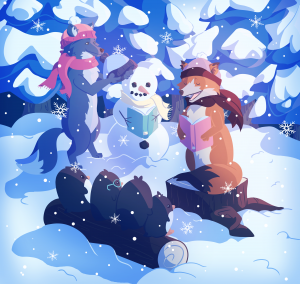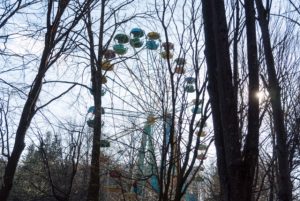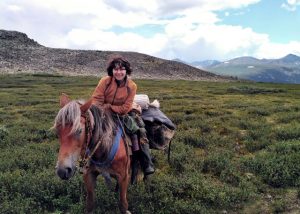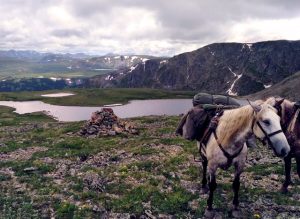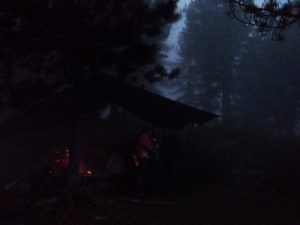We have a cracking short for you on the blog today, revisiting Greystones from Got Ghosts by Fiona Glass. Enjoy.
***
Karen saw the advert on Twitter while looking for something else. Ghoulish type-face, cute ghost graphics, a picture of a wobbly-looking old stone house. And words that might have been meant for her:
Can you handle the ghosts of Greystones Hall? Spend a whole night in the house this Halloween and win £5,000. We bet you can’t!
Smug, she thought. So sure of themselves. Probably got a whole load of special effects set up to scare decent folk out of their own bodies and into someone else. Well, she was above all that. She’d seen it all before, she was Ms Cynicism, she ate special effects for breakfast. And dinner. And probably lunch, too.
It cost £50 to take part, apparently, but that was a mere snowflake in the wider storm. Fifty quid could buy her those box sets she’d been looking at, or a decent meal with a couple of bottles of plonk. But neither of those came with a sure and certain hundred-fold return.
“Ghosts? Pfft.” She clicked her fingers at ghosts, and filled in the form.
Halloween came around and she followed the directions she’d been sent down a maze of country lanes. Tall hedgerows, clumps of woodland, pretty villages where old stone cottages huddled around fords. All very idyllic, all so very roses-around-the-door. And Greystones fitted in perfectly. Mellow stone glinting gold in the last of the October sunshine and yes, there was even a rose. But not much sign of ghosts.
There were three other cars parked up on the gravelled driveway. Karen wedged her BMW into the last remaining space, grabbed her hold-all and headed for the door. Before she could knock or ring the bell it opened, swinging on ancient hinges with a lusty squeal.
“Hello?” But there was no one there. She grinned. Clever, that. Must be set up with sensors or a pressure pad, and pulleys from another part of the house. She’d seen it before, at work. She stepped inside, half expecting a shower of bats or a bucket of water on her head, but there were no more surprises. Just a hallway full of ancient furniture, smelling of polish, gleaming in the sun. The same low sun picked out dust motes dancing in the air. And something more. A blur… some movement… was that a face?
Karen’s skin prickled, just for a moment, until sanity came back. A film projector, no doubt, casting a diffused picture across the dusty air. More cleverness. Whoever ran this place was quite a pro. The money was a bonus. She was going to enjoy tonight.
There was a bell on the table; she tinkled it and after a pause a door swung open. More dodgy electrics? Another movie show? Not this time, just a quiet-looking bloke of about forty or so, whose face was instantly familiar. “Guy Beaumont. It’s good to meet you at last.”
He advanced with a smile. “You too. It’s not often we get fellow professionals staying here.”
“Especially ones with so much insider knowledge?”
The smile became wry. “There is that. Can I take your bag? You’re in the Blue Room.”
She followed up a winding flight of stairs and along a creaking corridor. The room was cosy, with modern radiators (thank God), forget-me-not wallpaper and a solid four-poster bed. And probably a raft of devices set to deliver shocks and weirdness in the middle of the night. She eyed the bed hangings, the pictures, the wooden panelling, weighing up which to start searching first.
“Don’t worry, you won’t find anything out of place in here.”
Damn, Beaumont had caught her at it. “Sorry, was I that obvious? Force of habit, I suppose.”
“The crew used to say you were harder than anyone to convince.”
“I didn’t realise I was that famous.” She had a feeling they used to call her Smartypants Kaz behind her back, but there was no need to mention that.
Beaumont grinned. “I’m told the series took a downward turn after you left.”
“It wasn’t that great to start with.”
“Ah. Not a fan?”
“Let’s just say I’m not keen on things that pretend to be something they’re not.”
“And was it all a pretence?”
“Well of course. There’s no such thing as ghosts.”
Too late, she realised he was a medium and probably did believe in ghosts. Would he be angry? No, he was too much of a professional for that. A blankly pleasant mask slid over his face. “Of course not. Right, I’ll leave you to unpack. I hope you enjoy the show.”
You bet, she wanted to yell, but was too polite. And make sure you have your cheque book ready. You’ll be needing it.
She unpacked her holdall into a creaky wardrobe, noting the sounds it made. No surprising her later with squeaks and groans. Then she checked every corner of the room for wiring, bugs, or hidden microphones. But Beaumont had been right – apart from a stray leaf near one of the windows nothing was out of place. Except… a sudden tang of pipe smoke on the air. But that was probably drifting in from somewhere else. The garden, through that same open window. Someone walking down below. She grinned. If that was the best they could come up with, this would be even easier than she’d thought.
Downstairs the group – two middle aged woman and a man with an impressive beard – had gathered in the Drawing Room. It was a pleasant space with faded floral curtains and a real wood fire. The logs crackled and spat, a cat washed itself on the hearth rug, and it couldn’t be less ghostly if it tried. There was no sign of the owners, but the other guests had bagged the best sofa and were out-bragging one another with wild tales of nights spent in other supposedly haunted properties. She listened with half an ear to the talk, which was all fifty seven floating orbs in one corner of the room and I’m telling you, her head just wasn’t there. Ridiculous the rubbish people could make themselves believe if they wanted it badly enough. She poured herself a G & T and headed for another room.
The first door she tried led into the Great Hall, a magnificent space with a minstrels’ gallery and softly-playing Medieval music, which made her smile. The next was a library, full to bursting with books, plus a desk, a comfortable armchair – and a complete lack of ghosts. What a relief. She picked up a slim volume about the history of the hall and settled in the chair, sipping her gin and flicking through pages about every period of British history from the Normans on. It was only as she was getting to the Georgians that she realised she wasn’t alone. An old man stood by the fire, puffing on a pipe. She jumped. The first time she’d actually been startled since she’d arrived, but only because she hadn’t heard him come in. Had he been here all along?
“Sorry, I hope I’m not intruding. It’s just the others were telling ghost stories and I couldn’t, you know…”
The old man smiled. He had a nice smile, she thought – warm and slightly conspiratorial. “It can get tiresome.”
“You must hear a lot of it if these weekends are a regular thing.”
“One of my grand-daughter’s more… challenging ideas. But I believe it’s proving very popular.”
She’d almost finished her drink; the refills were in the other room. A toss up. Stay thirsty, or venture back? But it had been good – one of the new artisan-type gins. She put the book back and stood up. “Can I get you one?”
The old man’s smile became wistful. “Thank you, my dear, but these days I don’t drink.”
She was about to say something about a pipe being okay when there were voices outside the door. “…this the dining room? I heard someone talking…” It was the rest of the gang, led by the bloke with the beard. He looked faintly startled. “Oh, sorry. I was sure I heard… Who were you talking to?”
“The owner’s grandfather, I think he said. That’s right, isn’t it, Mr…?” But a quick glance at the fireplace showed there was no one there. How typical. And how clever. The best trick yet. She grinned ruefully. “There’s more to this place than I thought.”
“That’s why it’s the most haunted house in England, you know.”
She laughed it off, but all through dinner it continued to puzzle her. How had the owners made that one work? If it had just been the old man’s figure it could have been a projection, like the face in the dust – and a hidden transmitter could even have provided some sound. But that would have been stock phrases, while she’d had a whole conversation with him, question and answer, back and forth. Surely there was no way of programming that. Unless she was losing her touch.
Dinner was excellent but the atmosphere anything but. The beardy guy challenged her over the tiger prawns. “Do I get the impression you’re not a Believer, then?”
Usually she’d have launched into ‘no such thing as ghosts’ but in deference to the company she paused, shredding breadcrumbs off her roll. “I design special effects for films and television,” she said at last. “It’s hard to believe when you can spot the fakes a mile off.”
“But there must have been some times when it wasn’t faked?”.
“Not that I’ve ever come across.” She could have said more, but even that was too much judging by the frosty stares. At the end of the meal, full but far from satisfied, she headed back to the library to find the secret passage the old man must have used. That would explain how he’d got into the room unheard, and how he’d left again without her noticing. It probably came out somewhere just beneath her bedroom since that’s where she’d first smelled smoke. All she had to do was orientate herself, then bang on all the panelling until something moved.
It was harder than she’d thought. The house was such a maze that working out what went where was almost impossible. Eventually she thought she’d start with the wall next to the fireplace – and that’s when she had her second shock. The old man was there! Staring right at her out of the gloom and looking, dare she say it, mischievous. The room wasn’t well lit, just one small lamp on a side table near the door. It was a good few seconds before she realised what she was looking at. A painting! Of course. She took a deep breath and stilled her pounding heart. How ridiculous, to get herself so wound up. Everything had a logical explanation. She needed to remember that.
A sudden outbreak of screaming made her jump again. No special effect this time, by the sound of it, but the rest of the group elsewhere in the house.
“I think we can safely say they won’t be collecting their cheques.”
She leaped so hard she banged her hip on the desk. “You’re going to have to stop doing that. My heart can’t take much more.” Then she looked at him. Really looked, past the smug expression and the inevitable pipe. He seemed solid enough. How was he getting in and out? “That’s the best one yet. False fireplace? Is it painted on? Then you just open it up and step through the panelling?”
He waved his pipe, a thin coil of smoke dissipating into the air. “Why do you insist on avoiding the obvious?”
“What, ghosts, you mean? Pull the other one.” She rubbed her hip. That had hurt. But the money would make it all worthwhile. Five thousand quid, and the rest of the group had left. Nobody to share it with. The old man was looking at her as though he could hear her thoughts. An odd, quizzical look, but one tinged with sadness too.
“Does money mean so much to you?”
“I, er, no, of course not.” Damn him for seeing through to her soul. “I’m not that shallow if that’s what you mean. I can’t say it won’t be useful – bills to pay, things to sort out. But it’s my professional integrity at stake. You can’t fool a fooler, you know. And I’m the best there is at fooling everyone else.”
The scent of pipe smoke was very strong, suddenly. He seemed to loom over her, larger than the portrait, larger than life, larger than was really possible. “Perhaps not everyone, my dear. Or perhaps you’re simply better, in the end, at fooling yourself.” And he turned, waved the pipe one last time, and walked straight through the solid slate fireplace, leaving her in a completely empty room.
In the hall Guy Beaumont watched the tail lights of the BMW speed away from the house and grinned. Not only had he put one over on Smartypants Kaz, but it was another night when they wouldn’t have to pay the five grand out. This scheme of Em’s was working better than he’d dared to hope.
There was a faint shift in the air beside him; when he looked, Gramps was back from his escapades in the library. “You’re a terrible old rogue, you know that, don’t you?”
The old man smiled. I do my best.
